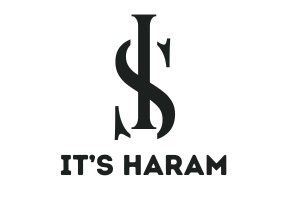As consumers become more conscious of their dietary choices, many people adhering to specific dietary laws, such as those in Islam, often question the permissibility of popular snacks. One such snack is Gushers, a beloved fruit-flavored treat known for its unique burst of juicy flavor. Given the complexity of food production and ingredient sourcing, it’s crucial to delve into whether Gushers are halal or haram for Muslims to consume. This blog post aims to provide a comprehensive analysis of Gushers, their ingredients, and the factors that influence their permissibility according to Islamic dietary laws.
Introduction of Gushers
Gushers are a popular fruit-flavored snack known for their juicy centers that “gush” with flavor upon biting into them. Manufactured by General Mills under the Betty Crocker brand, these snacks have captivated children and adults alike since their introduction in the late 1980s. However, for those adhering to Islamic dietary laws, the question arises: Are Gushers haram?
Ingredients of Gushers
To determine whether Gushers are haram or halal, it’s essential to examine their ingredients. Gushers typically contain:
- Sugar
- Corn syrup
- Dried corn syrup
- Pear puree concentrate
- Modified corn starch
- Fructose
- Maltodextrin
- Palm oil
- Carrageenan
- Citric acid
- Sodium citrate
- Monoglycerides
- Malic acid
- Ascorbic acid (vitamin C)
- Artificial flavors and colors (such as Red 40, Blue 1, Yellow 5, etc.)
Are Gushers Haram?
Gushers are generally not haram. The term “haram” refers to anything that is prohibited in Islam. For food products, this generally involves the presence of certain ingredients or processing methods that are not permissible under Islamic law. To determine if Gushers are haram, we need to scrutinize the source and nature of the ingredients.
Why Gushers Haram or Not?
Potential Haram Ingredients
- Gelatin: Many fruit snacks contain gelatin, which can be derived from pork or non-halal sources. While Gushers do not list gelatin, they do contain carrageenan and monoglycerides, which can sometimes be derived from animal sources.
- Artificial Colors and Flavors: These can sometimes be produced using non-halal methods, but they are often synthetic.
- Monoglycerides: These can be derived from animal fats, which might not be halal unless specified as plant-based or halal-certified.
Why Gushers May Not Be Haram
- Plant-Based Ingredients: If all the ingredients, including monoglycerides and carrageenan, are derived from plant sources, Gushers could be considered halal.
- Certifications: The presence of halal certification on the packaging would ensure the product meets Islamic dietary laws.
References to Quran and Hadith
The Quran and Hadith provide guidance on what is permissible (halal) and impermissible (haram) for consumption. For example, the Quran states:
“O you who have believed, eat from the good things which We have provided for you and be grateful to Allah if it is [indeed] Him that you worship.” (Quran 2:172)
This verse emphasizes the importance of consuming halal and pure foods. Additionally, the Hadith mentions:
“What is halal is clear, and what is haram is clear, but between them are certain doubtful things that many people do not know.” (Sahih Bukhari)
This suggests that when in doubt, it’s better to avoid questionable items.
Opinions of Scholars
Islamic scholars often review food products to determine their permissibility. Some scholars may classify Gushers as haram if there is uncertainty about the sources of certain ingredients. Others might consider them halal if they are confident in the plant-based origins of those ingredients.
Diverse Opinions
- Strict View: Some scholars insist on complete transparency and halal certification.
- Moderate View: Others may allow consumption if there is reasonable assurance that no haram substances are present.
Substitutes for Gushers
For those who prefer to avoid Gushers due to potential doubts about their halal status, there are several alternatives available:
- Halal-Certified Fruit Snacks: Many brands offer halal-certified fruit snacks that guarantee no haram ingredients.
- Natural Dried Fruits: Options like dried apricots, dates, and figs are naturally halal and healthy.
- Homemade Fruit Snacks: Making your own fruit snacks at home allows control over all ingredients used.
Why Is the Question of Whether Gushers Are Haram or Not Important?
The question of whether Gushers are haram or not is significant for several reasons, especially for Muslims who adhere to Islamic dietary laws. Here’s a detailed look at why this question matters:
1. Religious Observance
For Muslims, consuming halal (permissible) food is a fundamental aspect of their faith. The Quran and Hadith provide clear guidelines on what is halal and haram (forbidden). Ensuring that food intake aligns with these guidelines is crucial for religious observance and maintaining a halal lifestyle. Consuming haram food can be seen as disobedience to religious principles.
2. Ingredient Transparency
Modern food production often involves complex ingredients and processing methods that are not immediately obvious to consumers. Ingredients like monoglycerides, artificial flavors, and colors can be derived from various sources, some of which may not be halal. Understanding whether Gushers contain any non-halal components requires transparency from manufacturers and awareness among consumers.
3. Ethical and Health Considerations
Many Muslims are also concerned about the ethical and health implications of their food choices. Halal certification often ensures that the food has been prepared in a clean and humane manner, which aligns with broader ethical considerations. Additionally, halal foods are typically free from harmful substances and contaminants, contributing to a healthier diet.
4. Cultural and Social Context
Food is a significant part of cultural and social practices. Muslims living in non-Muslim majority countries often face challenges in finding halal food options. The availability and identification of halal snacks like Gushers can impact social interactions, particularly in multicultural settings where sharing food is common.
5. Educational Aspect
The process of determining whether a food product is halal or haram educates consumers about food ingredients, processing methods, and the importance of making informed choices. This knowledge can empower Muslims to make better dietary decisions and advocate for clearer labeling and certification standards.
6. Respect for Religious Diversity
Why Is the Question of Whether Gushers Are Haram or Not Important?
The question of whether Gushers are haram or not is significant for several reasons, especially for Muslims who adhere to Islamic dietary laws. Here’s a detailed look at why this question matters:
1. Religious Observance
For Muslims, consuming halal (permissible) food is a fundamental aspect of their faith. The Quran and Hadith provide clear guidelines on what is halal and haram (forbidden). Ensuring that food intake aligns with these guidelines is crucial for religious observance and maintaining a halal lifestyle. Consuming haram food can be seen as disobedience to religious principles.
2. Ingredient Transparency
Modern food production often involves complex ingredients and processing methods that are not immediately obvious to consumers. Ingredients like monoglycerides, artificial flavors, and colors can be derived from various sources, some of which may not be halal. Understanding whether Gushers contain any non-halal components requires transparency from manufacturers and awareness among consumers.
3. Ethical and Health Considerations
Many Muslims are also concerned about the ethical and health implications of their food choices. Halal certification often ensures that the food has been prepared in a clean and humane manner, which aligns with broader ethical considerations. Additionally, halal foods are typically free from harmful substances and contaminants, contributing to a healthier diet.
4. Cultural and Social Context
Food is a significant part of cultural and social practices. Muslims living in non-Muslim majority countries often face challenges in finding halal food options. The availability and identification of halal snacks like Gushers can impact social interactions, particularly in multicultural settings where sharing food is common.
5. Educational Aspect
The process of determining whether a food product is halal or haram educates consumers about food ingredients, processing methods, and the importance of making informed choices. This knowledge can empower Muslims to make better dietary decisions and advocate for clearer labeling and certification standards.
6. Respect for Religious Diversity
Understanding and respecting dietary restrictions is part of fostering inclusivity and respect for religious diversity. For food manufacturers and retailers, being aware of and accommodating these needs can enhance customer trust and loyalty among Muslim consumers.
Summary
Determining whether Gushers are haram involves a careful examination of their ingredients and their sources. While some ingredients in Gushers may raise questions, the absence of clear halal certification leaves some uncertainty. Consulting knowledgeable scholars and seeking out halal-certified alternatives can help ensure adherence to dietary laws.
FAQs
Are Gushers vegan?
Gushers do not contain gelatin but include other ingredients that may be animal-derived. Check the packaging for vegan certification to be sure.
Is there a halal certification for Gushers?
As of now, Gushers do not typically come with halal certification. It’s best to contact the manufacturer for detailed information.
Can Muslims eat Gushers?
This depends on individual interpretations and the sources of certain ingredients. Some may choose to avoid them due to the potential for non-halal ingredients.
Are there halal alternatives to Gushers?
Yes, there are many halal-certified fruit snacks available, as well as natural dried fruits and homemade options.







